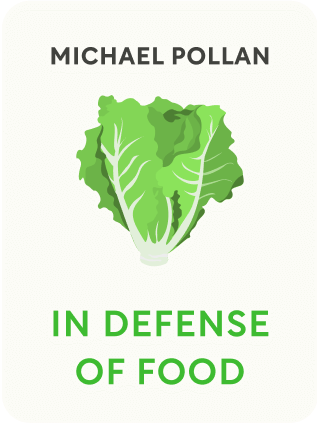

This article is an excerpt from the Shortform book guide to "In Defense of Food" by Michael Pollan. Shortform has the world's best summaries and analyses of books you should be reading.
Like this article? Sign up for a free trial here .
Is there a link between saturated fat and heart disease? Does consumption of saturated fat lead to an increased risk of coronary heart disease? Is there any scientific evidence to corroborate this association?
Since the 1950s, doctors and the general public alike have believed that consumption of saturated fat leads to coronary heart disease (CHD). However, only a few studies ever found a positive correlation between saturated fat and heart disease.
Keep reading to learn more about the link between saturated fat and heart disease.
Saturated Fat and Heart Disease
The idea that consumption of saturated fat and heart disease are linked was born in the 1960s when the US government formed the Senate Select Committee on Nutrition and Human Needs to research the relationship between food and health. For several years, scientists studied food consumption and health in America and discovered some interesting patterns.
- During World War II, meat and dairy were strictly rationed, and rates of heart disease were reduced.
- After the war, when rationing was no longer required, coronary heart disease skyrocketed in America.
- Other cultures who maintained a plant-based diet after the war did not experience the same results.
These findings created the “lipid hypothesis,” which stated that fat and cholesterol, mostly from meat and dairy, led to increased rates of heart disease. Once the hypothesis was embraced, all movement in the food industry became geared toward removing saturated fats from food.
As saturated fats were removed, polyunsaturated fat and trans fat took their place. Meat remained a strong staple in the diet. Now, the chunk of beef on the plate was replaced by a chunk of chicken breast with a hefty side of carbohydrates. These actions were justified by the guidelines to “eat more low-fat food.”
With free license to eat as much low-fat food as they wanted, people didn’t change the amount of food they consumed. They ate massive amounts of foods deemed “good” because of the nutrient value. You could now eat a whole box of low-fat cookies and call it healthy eating. Unfortunately, this thinking was based on a lie.
As opposed to the lack of evidence linking saturated fat and heart disease, the evidence linking trans fat to heart disease is vast. Trans fats were the alternative fat used in most low-fat foods. It’s hard to know how much trans fat was consumed before the 1990s, when scientists learned that the product they’d been pushing was almost twice as likely as saturated fat to cause heart disease.
Trans fat negatively affects the body in the following ways:
- It raises bad cholesterol and reduces good cholesterol.
- It increases triglycerides, a risk factor for coronary heart disease.
- It promotes inflammation and blood clotting.
- It can lead to insulin resistance.
Finally, the war waged against saturated fats dismissed some key aspects of the role of fat in the body in general. The brain is mostly fat, which is needed to protect the delicate cells and neurons. Fats are also the foundation of the body’s cellular walls. Different amounts of various fats help the body absorb vitamins and minerals on a cellular level.

———End of Preview———
Like what you just read? Read the rest of the world's best book summary and analysis of Michael Pollan's "In Defense of Food" at Shortform .
Here's what you'll find in our full In Defense of Food summary :
- Why eating a Western diet is killing you
- How the rise of low-fat foods contributed to the rise of obesity and diabetes
- What to eat if you want to restore a healthy relationship with your food






